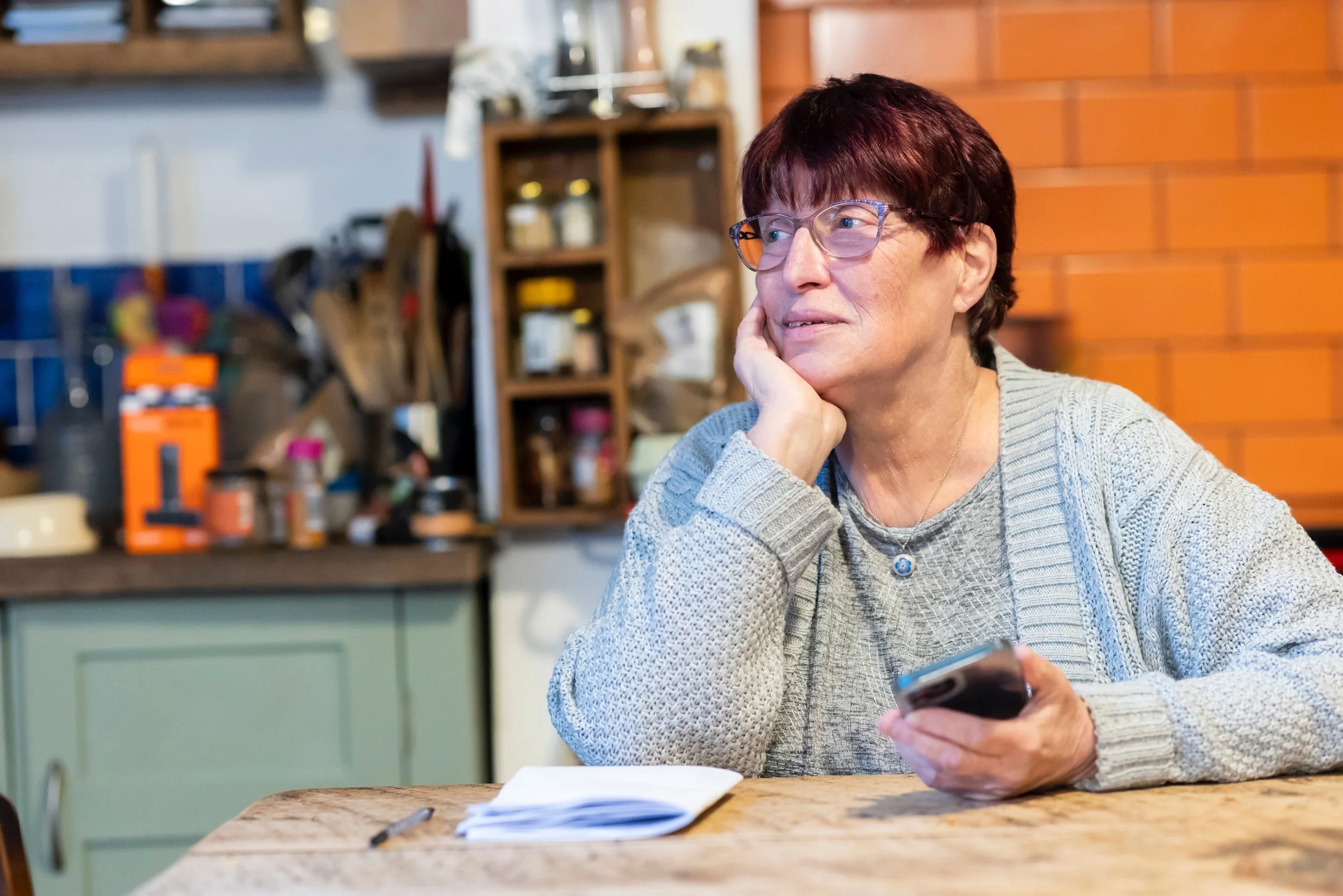Hey researcher! Designing for everyone starts with you!
Photo by Centre for Ageing Better on Unsplash
A recent post on Linked in from David Hamill [1] asked when was the last time you did research without using a stimulus? I paused and had a think. I realised it's been a while because my recent projects have all been against the clock to get something released before (here's some of the reasons):
legal requirements change or
licence fees are renewed or
budgets run out.
Now, I love using materials with discovery research because I think it helps stimulate discussion around a topic, and/or gives us something to point at so we all know we're talking about the same thing. But the frequent conflation of research and UX design means teams might assume you'll take at least some concept prototypes into discovery research sessions. And if you do that, you've already got a working assumption of what your solution will be. And with that you've made some assumptions about the people who will use it. (UX design and research are NOT the same thing [2] ).
I mostly work with public sector departments in the UK who are required by law to ensure their services work for everyone who needs them. In reality this is often about finding ways to get everyone to use the digital route, by ensuring there is a suitable "assisted digital" route for those who don't or can't use it themselves. Assisted digital means service users have someone they can turn to who will use the digital on their behalf. This could be a member of the family or a customer service agent on the end of a phone line.
Why not include a non-digital part of the service? Well, the service manual suggests not using paper alternatives [3] because:
it's cheaper to deliver services online
they're harder to iteratively improve
they make errors more likely
they can't redirect people who take a wrong turn
they "don’t help build the user’s digital skills and confidence"
That last reason illustrates the fundamental assumption that users should be using digital services. It assumes that people want to build their digital skills and confidence.
But what if they don't want to or can't?
Today I caught up with a recent "You and Yours" (it's a consumer phone-in program on BBC Radio 4 in the UK) that was on this topic and explored how people who cannot or choose not to go online are increasingly excluded from services or discriminated against. If you are in the UK I recommend listening on replay [4].
During the programme we heard calls from people talking about the problems they face with the increasing shift to online channels. Some of the callers cannot use online, while others chose not to. It's a free country, surely their choice should be honoured?
We heard during the programme:
how irritating it can be to call a company and sit on hold listening to an endless loop of being told they could do things quicker online - if they could be online they would be!
how non-digital channel users are discriminated against with higher costs or restricted from offers
And then we heard from someone from Silver Voices, an organisation for the over-60s [5]. They're talking with the NHS about the number of GPs who are moving to online only routes for booking appointments.
This stopped me in my tracks.
Sure, commercial organisations might choose to ignore part of their potential customer base, but access to primary health care? That's shocking.
I've no doubt my fellow researchers in health care services are working hard on this but here's my call to researchers wherever you work.
Designing for everyone starts with us. Doing good discovery research, free of design or solution concepts, allows us to explore the needs, situations, constraints and preferences of ALL the potential users of a service. Only with those insights can we ensure that design solutions work for everyone.
David Hamill on Linked In https://www.linkedin.com/posts/davidhamill_uxresearch-activity-7136344845798764544-f6Wy?utm_source=share&utm_medium=member_desktop ↩︎
Dr Ari Zelmanow on Linked In https://www.linkedin.com/posts/zelmanow_research-and-ux-are-different-research-activity-7138552894890397696-MClz? ↩︎
Gov.uk service manual https://www.gov.uk/service-manual/helping-people-to-use-your-service/designing-assisted-digital ↩︎
You and Yours 12 Dec 2023 https://www.bbc.co.uk/sounds/play/m001tbgq ↩︎
Silver Voices https://silvervoices.co.uk/ ↩︎
Article previously published on medium.
